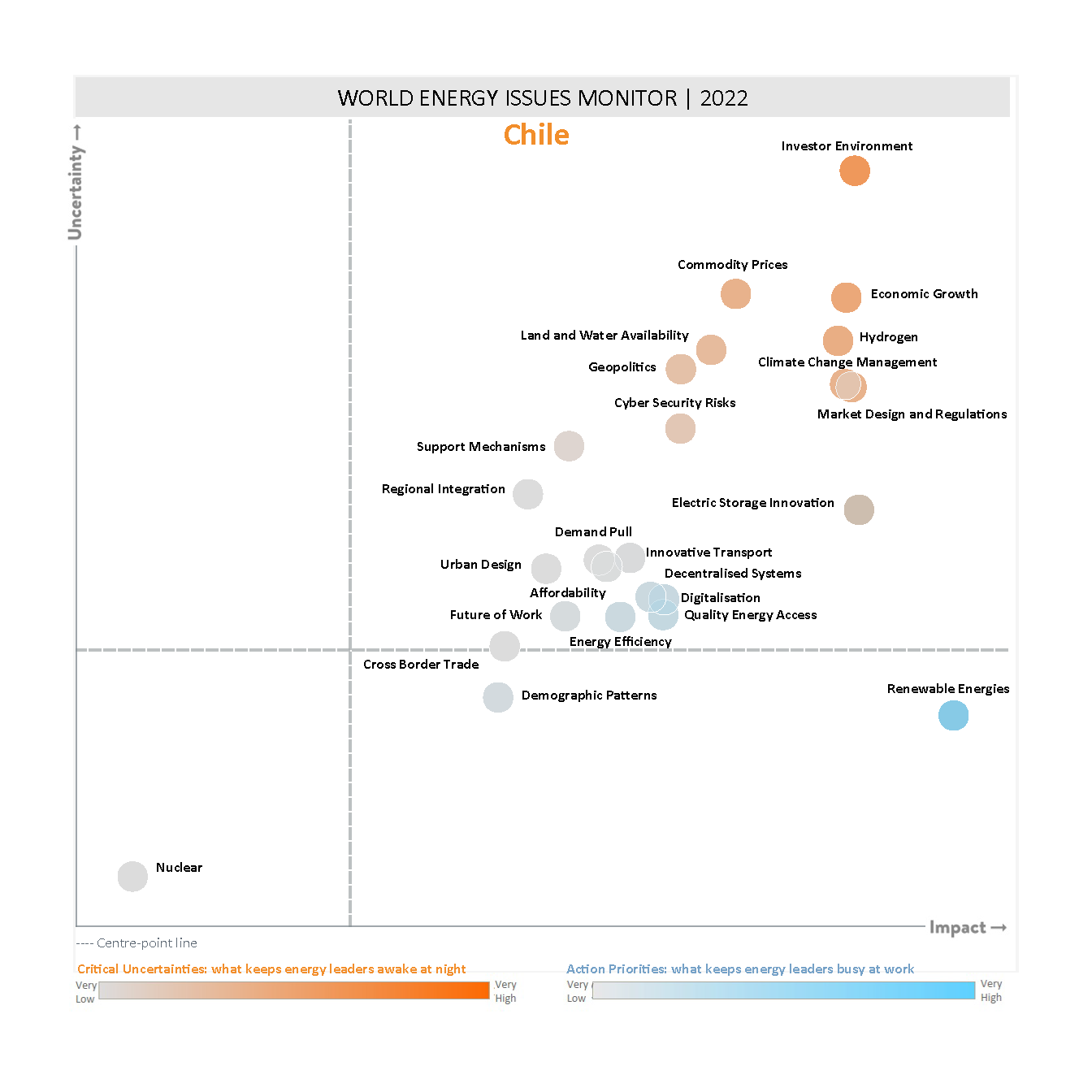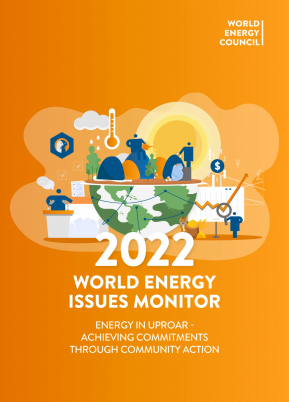The Chilean National Committee aims to promote sustainable energy development in Chile, as a part of the World Energy Council's energy vision. As a member of the World Energy Council network, the organisation is committed to representing the Chilean perspective within national, regional and global energy debates. The committee includes a variety of members to ensure that the diverse energy interests of Chile are appropriately represented. Members of the committee are invited to attend high-level events, participate in energy-focused study groups, contribute to technical research and be a part of the global energy dialogue.

Constanza is a Journalist with more than 15 years of experience in strategic communications, corporate affairs and social responsibility. She has developed her career both in the private and NGO sector.
She has created and implemented communications strategies and corporate affairs, leading teams with outstanding results and facing important challenges for the companies she worked in.
Constanza is currently the Communications Director of Generadoras de Chile. Generadoras is an association that represents electricity generation companies of several technologies such as renewables and thermoelectric. She is in charge of generating and coordinating communications to achieve the energy transition and best practices in public policies for the correct use and generation of electricity.
M. Trinidad Castro Crichton currently serves as Secretary of the World Energy Council’s Chilean Member Committee. Her background is in management in the nonprofit sector and she has worked as a university professor.
Crichton is experienced in designing new operational and commercial strategies and projects focused on the needs of the beneficiary and the community as well as change management and implementation of new practices. With an integral vision, she has a strong orientation to achievement and management by objectives with a solid service vocation.
Crichton has a bachelor’s degree in Business, administration and economy and graduated in Public Policy and Relational Mindfulness.

Energy in Chile

The evolution of Chile's results from previous Issues Surveys to the current one was very interesting. When we look at the past 5 years of results, we can see that the main sources of uncertainty remain relatively stable over time, such as prices (of raw materials, electricity, and hydrocarbons, among others); the challenge of adapting to climate change; risks of extreme weather; and issues related to the management of water, one of Chile’s most abundant natural resources.
We can see how the context has a significant influence on results, if they are compared with those obtained in the previous edition. In the previous survey, demands of rapid social, political, and economic changes asked for a resilient, safe, people-focused, and fairly priced energy sector. These demands were realised through various measures, such as the price stabilisation mechanism; the basic services law, which sought to facilitate financing for families; the facilities for companies in the presentation of projects to construction; peak hours were postponed; and the tender to promote the use of electricity in southern areas that consume firewood. Alongside that, a successful electric bidding procedure was conducted in 2021, and the development of the Technical Standard on Cybersecurity in the National Electric System was initiated.
If we look at this year’s results, we can see how Chile went from being aware of international economic conflicts to seeking stability in the country on a variety of issues. It is important to remember that these responses were given in the context of an election, which, when combined with the COVID-19 pandemic, increased the sense of uncertainty; a period of political polarization that focused attention on the country. This can be seen by comparing the relative positions of all the results to the 2020 results.
We know that this rise in instability has occurred in other countries, among other cross-cutting factors, but in the Chilean case, four of the five issues considered outstanding are the environment for investors, commodity price volatility, economic growth fragmentation, and the importance of having stable regulation and a flexible market design. The latter should allow new technologies to enter the market and continue to reduce the carbon footprint while ensuring supply security and system stability.
This viewpoint illustrates how essential it is for the energy sector to have a comprehensive public energy policy (see Investor Environment issue). In this case, public policy must maintain a long-term vision of regulatory stability, with a focus on continued investment and growth in new infrastructure, generation, and technology. With this, we will be able to sustain the level of system resilience and market flexibility that Chile requires.
As we mentioned in the Chile’s 2021 country commentary, participatory processes are fundamental to the design of public policies, integrating existing technological solutions, educational models, and more transparent collaboration, where dialogue and construction can attract and involve more into the energy sector.
In contrast, when we examine the progress of action priorities, both renewable energy and the implementation of green hydrogen are regarded as relevant and high impact. This rapid rise in importance is primarily due to four factors: the availability of water resources (mentioned above), a public policy focused on promoting these energies (the designs of the Long-Term Energy Policy and the National Green Hydrogen Strategy are central to this); the evolution of technology (with the entry of new actors in the sector); and the need to seek solutions to the challenge of adapting to climate change.
With particular regards to climate change, sectoral digitalisation, the development of more efficient and innovative transportation, and incorporation of energy efficiency measures (and education around them) for homes, industries, and commerce will be critical to balance different lines of activity with the ongoing social trends. These resources can provide critical support to the goal of improving energy circumstances in remote locations and increasing people's quality of life.
Team diversity and the involvement of women in the industry is another crucial objective of the country’s energy sector. Based on the work done in 2017 as part of the Energy and Gender Agenda, the "Energy Plus Women" program was formed, an initiative that has been a catalyst in the design and execution of plans focusing on equity, diversity, and the inclusion of women in sector enterprises.
This, along with WEC Chile's "Women in Energy" program, are two local programs that have effectively supported, trained, and empowered women to excel in the field. We must keep going in this direction, until these programs achieve their goals. Since only then can the challenge of making energy policy for a diverse society be incorporated into our plans.
Acknowledgements
Chile Member Committee
Kiumarz Goharriz Chahin
Downloads

Chile Energy Issues Monitor Commentary 2022
Download PDF
World Energy Issues Monitor 2022
Download PDF






_368_520_s_c1_c_c.png)





